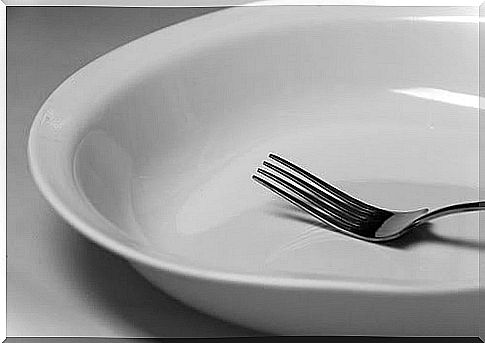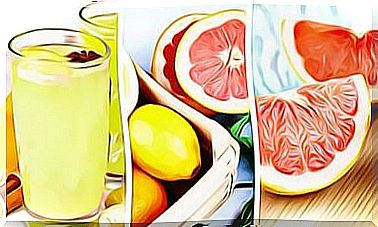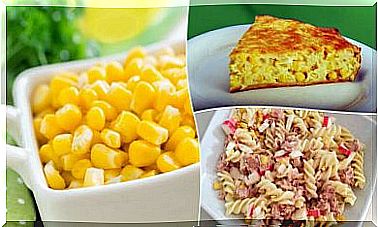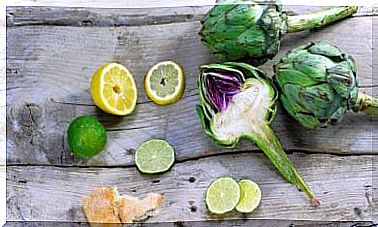Fasting Once A Week To Stay Young

Apparently creams and external treatments are not enough. Fasting once a week is a great option for staying young and feeling great.
How do you know if this method is right for you? Is it possible not to eat for a day? Will you be able to endure hunger? These are all questions that will be answered in this article.
Because fasting is good for health
The digestive system is always active, even while you sleep. Diseases usually have a lot to do with the toxins that build up over the years from what you eat. If you know that good sleep is essential for the body, why not rest the stomach?
Mahatma Gandhi was one of the advocates of fasting and has fasted on various occasions. According to the researchers, thanks to this practice he managed to live with great clarity and vitality. He died because he was killed at 79, otherwise he would have lived again.
However, this type of fasting is not suitable for everyone. Anyone who believes that stopping eating for a few days helps you lose weight is wrong. Fasting for three weeks results in loss of muscle mass, not fat mass, plus it directly damages the heart.

According to what has been indicated, the human body can survive ten days without eating, not suffering any damage. Despite this, the ideal would be not to fast for more than three consecutive days and do it once a week for optimal results.
The main benefits of fasting include organ regeneration. This results in a younger feeling and appearance, and the ability to feel good and healthy.
It will also give you greater mental clarity, you will be in a good mood, will strengthen your immune system and you will be more productive at work. There are even those who claim that fasting cures chronic diseases such as asthma, arthritis, hypertension or allergies.
The benefits are not only physical, but also emotional or spiritual. Fasting is reflected in greater peace of mind, gives joy, allows you to see life in a different way, makes you understand that nutrition is necessary to nourish and not to harm, and so on.
How to start fasting?
There are several types of fasting, but in the beginning it is best to simply avoid ingesting solid foods throughout the day.
It is not recommended to wait anxiously until midnight to binge, as this would be counterproductive for you and your body. We encourage you to take liquids or juices that do not exceed 300 calories.

Don’t start your fasting routine overnight. The best thing to do is to prepare the body. The day before, eat only raw fruits and vegetables, as well as drink water and herbal infusions.
If you want to follow a one-day fasting program without eating solid foods once a week, eat normally for four days and change your diet for the remaining three: pre-fast, fast, and post-fast. These three days are special and require some preparation.
Day 1 (pre-fast)
For example, if you decide to fast on Saturday, on Friday you must follow a diet based on raw fruit and vegetables in the quantities you want. You may be hungry, but don’t fall into the temptation to eat something heavier or outside what’s allowed.
Remember that you can drink fruit juices, smoothies, infusions and broths, as long as they are natural. End the day with a light dinner and go to bed early.
Day 2 (fasting)
After sleeping for 8 consecutive hours, start your fasting day by drinking plenty of water. It is good that you stay at home for that day (for this reason we recommend the weekend) and that you keep busy with tasks that do not require much effort.
Take advantage of it to read, meditate, arrange your clothes, water the plants, all activities that do not require a great deal of energy. Drink water alone or accompanied by fruit (plums, apples, oranges) without eating it.
Some opt for natural juices and vegetable broths, but it all depends on your characteristics and also on what you include in these foods. If it’s just orange juice that’s fine, but if you add fruit pulp it’s not. If the vegetable broth has been filtered and you only consume water it is correct, but if you leave the vegetables in pieces it is not good.
The idea of liquid fasting is that you don’t get dehydrated and your stomach doesn’t digest food at the same time. It is also not okay to “fool” the stomach with liquids when you are hungry.
Day 3 (post-fast)

As mentioned before, it’s not about waiting for the day to end and running to the fridge. On the third day of the week, which could be Sunday, take advantage of it to stay on a diet from all that is harmful to health, namely white flours, refined sugars, fast food, fat, fried, meat and dairy products.
On the contrary, you can eat fruit, vegetables, possibly raw, dried fruit, legumes and wholemeal flours. Eat a small amount and don’t exert too much physical effort.









